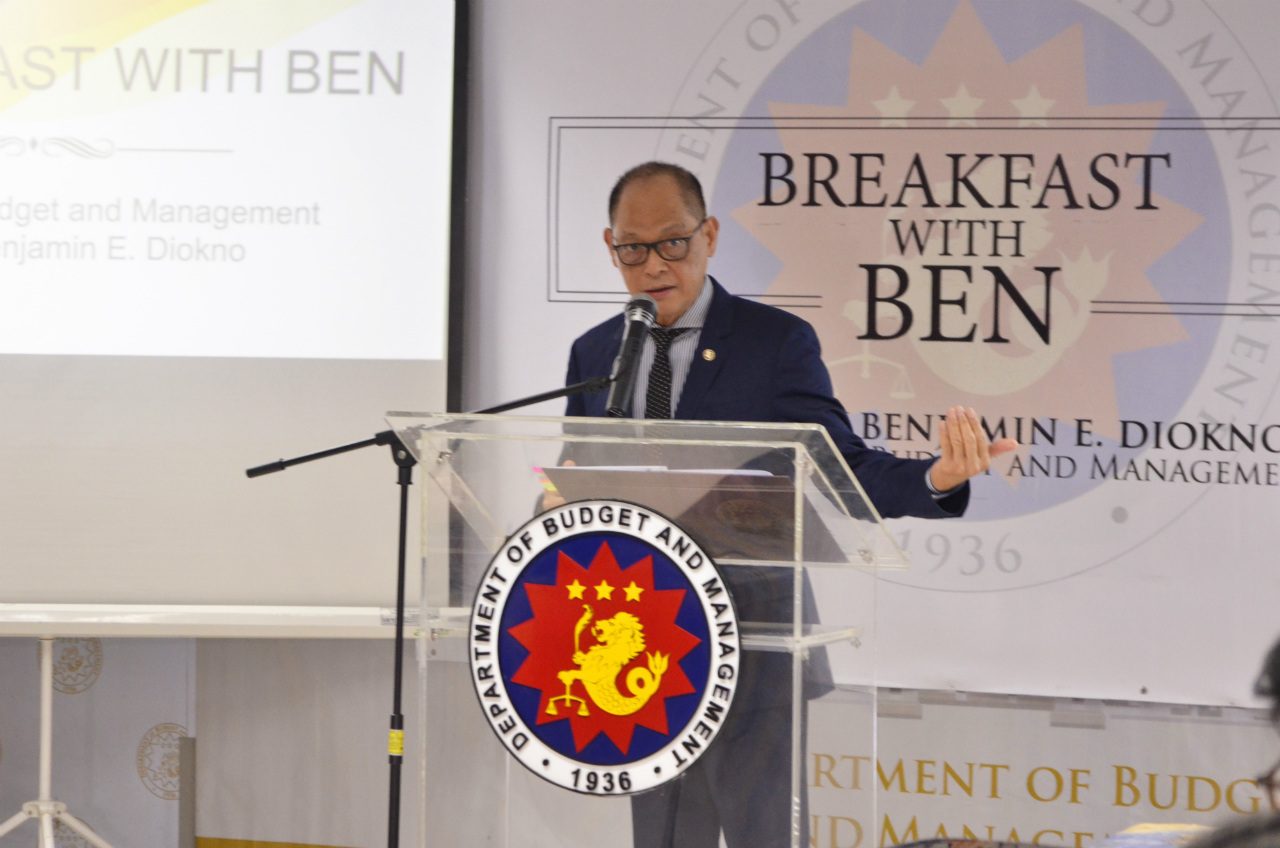SUMMARY
This is AI generated summarization, which may have errors. For context, always refer to the full article.

MANILA, Philippines – Around 10 million households will receive P200 per month from the government to help them cope with the impact of new taxes that took effect this year.
Budget Secretary Benjamin Diokno said in a news briefing on Wednesday, January 10, that the government has earmarked P28.8 billion in the 2018 national budget to offset the impact of the Tax Reform for Acceleration and Inclusion (Train) law. (READ: EXPLAINER: How the tax reform law affects Filipino consumers)
“This is in response to critics who say that Train is anti-poor because the informal sector and already tax-exempt wage earners will be faced with higher excise taxes,” said Diokno. (READ: Gov’t urged to shield poor from higher costs due to tax reform law)
“Aside from increasing the take-home pay of many workers with the reduced income tax rates, we will also augment the incomes of the poorest 50% of households,” he added.
According to the Department of Budget and Management, some P24.5 billion has been allocated for unconditional cash grants to the poorest 50% of households identified by the Department of Social Welfare and Development (DSWD).
In 2019 and 2020, the subsidy will be increased from P200 to P300, with an allotment of P38.5 billion in the national budget in the coming years. Currently, the fund is lodged under the budget of the Land Bank of the Philippines (LBP). (READ: What’s the share of gov’t offices in the 2018 P3.8-T national budget?)
Diokno assured the public that the inflationary effects of Train is only temporary, and would even lead to lower prices later on. He said that the Bangko Sentral ng Pilipinas (BSP) maintained the inflation target at 2% to 4% until 2020 as approved by the Development Budget Coordination Committee in December 2017.
“In the long-term, Train should even lead to lower prices as it will result to better productivity and lower transportation costs with superior infrastructure,” Diokno said.
The allocation in relation to the new tax law will be also used to fund loans for the Public Utility Vehicle (PUV) modernization program and the implementation of the national ID system.
Some P2.3 billion has been allocated under the LBP for the financial loan scheme to drivers to purchase new jeepney models under the PUV modernization program. (READ: Is the PUV modernization program ‘anti-poor?’)
Another P2 billion has also been earmarked for the national ID system to limit leakages in the delivery of social service programs, particularly cash transfer programs of the government, the DBM said. The funds is under the budget of the Philippine Statistics Authority.
The recently implemented Train law will increase taxpayers take-home pay for most employees but it would also lead to pricier cars, fuel, tobacco, and sugar-sweetened beverages. This, in turn, is expected to lead to higher transportation fares, prices of basic commodities, and power rates. (READ: [OPINION] Train law: What does it change?)
According to the DBM, the government’s revenue loss due to the new tax reform law is estimated at P1465.6 billion this year. From 2018 to 2022, the estimated total loss is P894.2 billion.– Rappler.com
Add a comment
How does this make you feel?
There are no comments yet. Add your comment to start the conversation.